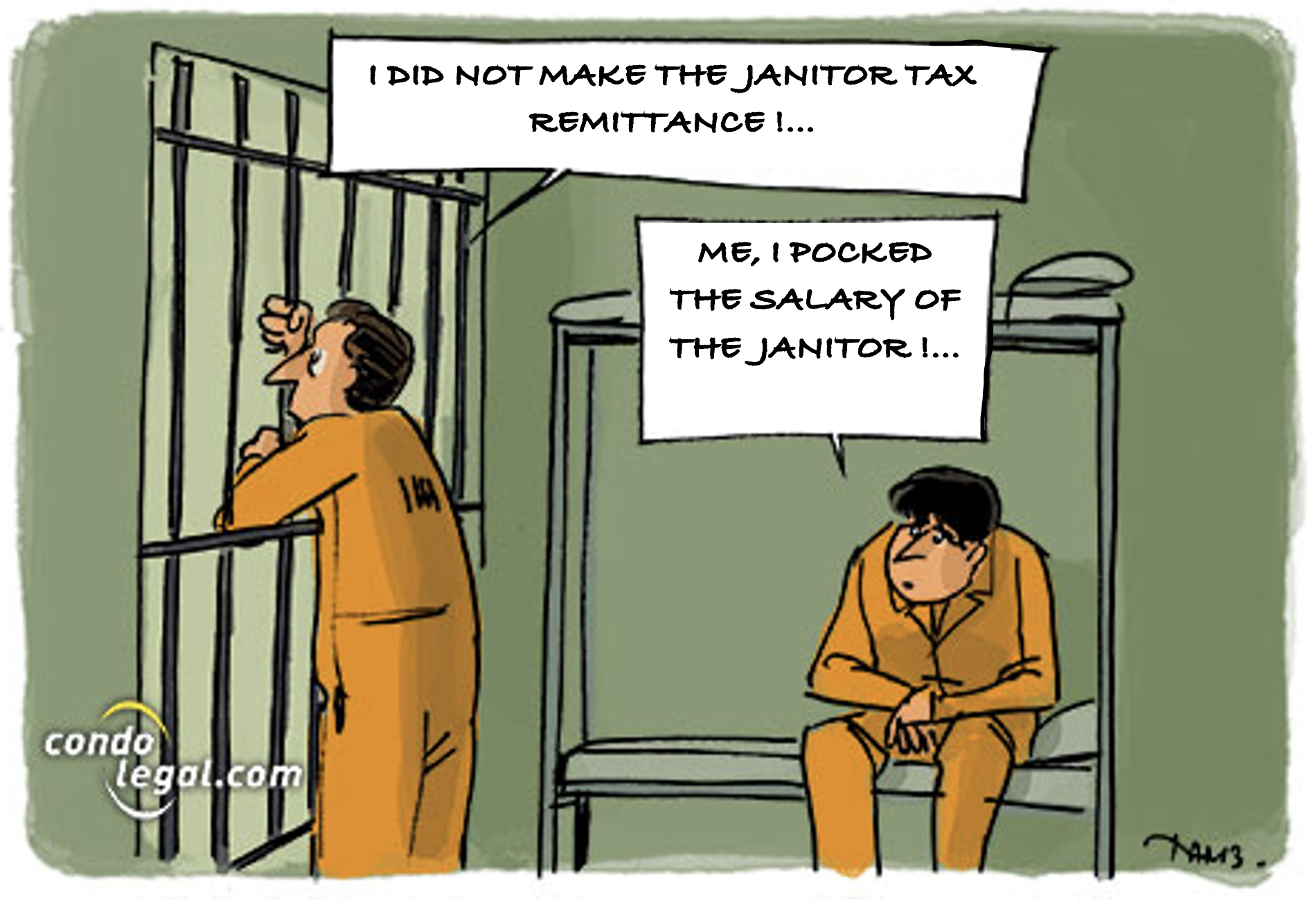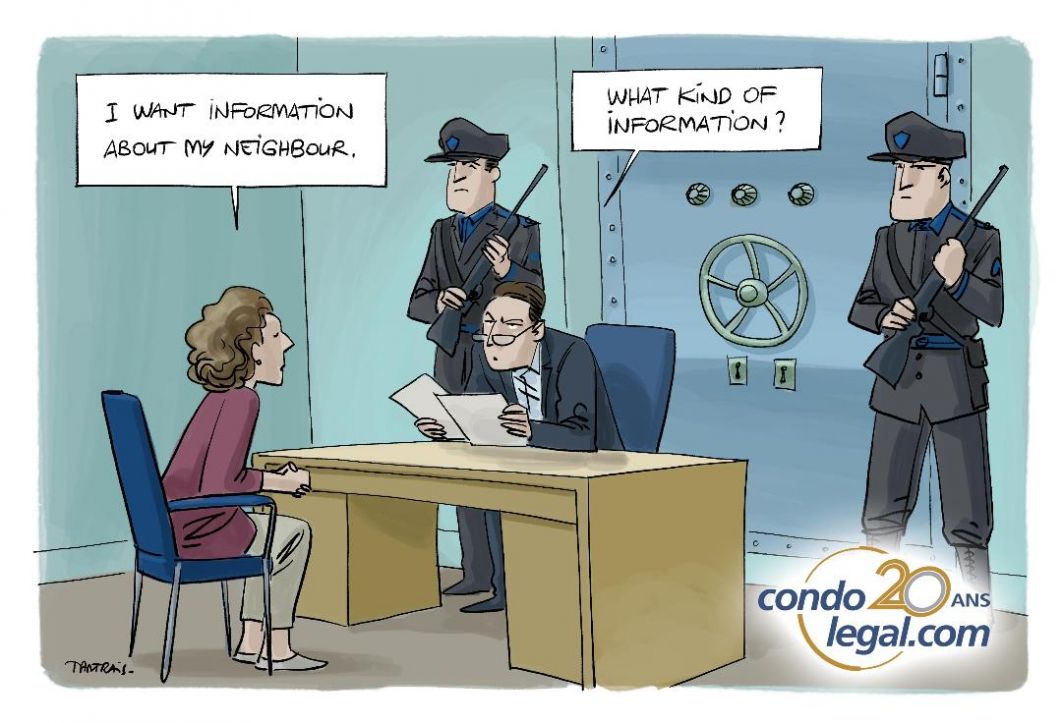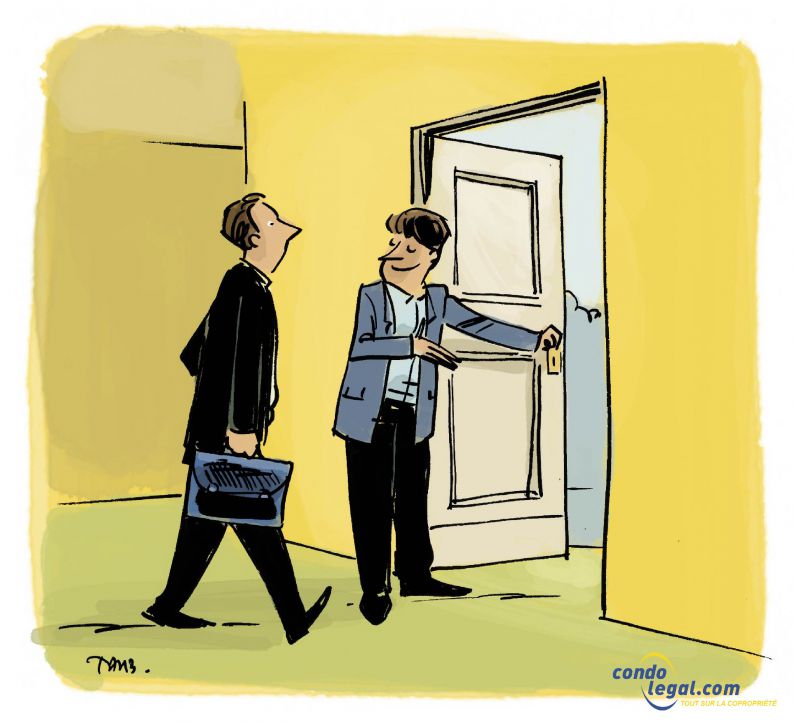 The duties and obligations of directors are at the heart of the good governance of a co-ownership. As part of their duties, directors are required to ensure that the syndicate of co-owners complies with the laws. This is why, in addition to the duties of diligence and loyalty of directors set out in the Civil Code of Québec, specific obligations, described as "statutory", are imposed on them. Some statutes provide for a directors' liability regime that makes them personally liable for offences committed by the union. These liabilities are criminal or civil in nature and may be punishable by the payment of high fines.
The duties and obligations of directors are at the heart of the good governance of a co-ownership. As part of their duties, directors are required to ensure that the syndicate of co-owners complies with the laws. This is why, in addition to the duties of diligence and loyalty of directors set out in the Civil Code of Québec, specific obligations, described as "statutory", are imposed on them. Some statutes provide for a directors' liability regime that makes them personally liable for offences committed by the union. These liabilities are criminal or civil in nature and may be punishable by the payment of high fines.
This is the case, in particular, with regard to laws relating to taxation, occupational health and safety and the environment.
Criminal liability: individual case
Non-compliance with the law by a syndicate of co-owners can lead to various consequences, including that of engaging the criminal liability of a director. Some laws specifically provide that when a corporation (e.g., a syndicate of co-owners) commits an offence under the Act, any director who prescribed, consented to or authorized the performance of the act or omission, which constitutes the offence, is deemed to have participated in the offence. It is generally provided that the director is therefore liable to the same penalty as the legal person, whether or not the legal person has been prosecuted or convicted.
This is the case, in particular, in the event of a breach of certain provisions of:
Civil liability: case in point
In certain circumstances, directors may be required to personally pay amounts owed by the syndicate of co-owners. This may be the case when the syndicate fails to make source deductions or remit amounts due in respect of federal or provincial syndicate employee contributions on wages and certain employee benefits, including those relating to the Québec Pension Plan (QPP) and the Québec Parental Insurance Plan (QPIP). This is also the case for non-payment of dues owed by the union to the Commission des normes, de l'équité, de la santé et de la sécurité du travail (CNESST), when the latter is considered an employer by the CNESST.
Defences
For a director to be held criminally and civilly liable, he or she must generally have acted with intent, fault or negligence. He may defend himself by invoking, inter alia, that he acted with a degree of care, diligence and skill reasonable in the circumstances, taking all necessary precautions to prevent the commission of the offence, or that, in the same circumstances, he could not have been aware of the omission contemplated by law.
Consequences
The statutory liability of a director can lead to serious consequences, such as a fine, a ban on exercising certain activities or functions, a sentence to pay sums due by the syndicate of co-owners. And not to mention that a conviction of a director risks tarnishing his reputation as to his probity. It is therefore important for a director to be well aware of his duties and obligations, as well as the risks to which he is exposed.
Prevention
Articles 321 and 322 of the Civil Code of Québec provide that the director must, in the exercise of his functions, respect the obligations imposed on him by law, the constituting act and the regulations and act within the limits of the powers conferred on him, and exercise prudence and diligence, honesty and loyalty in the interest of the legal person. To avoid liability, a director should follow these guidelines:
End of term
A person who holds the office of director ceases to hold office at the end of the period fixed in his term, his death or as a result of his resignation. When a director ceases to act in this capacity, he must ensure that a current updating declaration is filed promptly, so that his name no longer appears (as a director) with the Registraire des entreprises du Québec (REQ). Until the records are corrected, the bona fide third party may, in certain circumstances, rely on the information contained therein.
Insurance coverage
It is impossible to completely eliminate statutory liability risks, as some laws may impose strict or no-fault liability on directors. It is therefore recommended that liability insurance be taken out by the syndicate to cover the risks associated with breaches and breaches committed by the syndicate. This type of insurance covers defense costs and damages in the event of a lawsuit.
 WHAT YOU SHOULD KNOW! The criminal liability of a director is the possibility that he will be prosecuted and sentenced for his acts, committed in the exercise of his functions, when his behavior violates the rules established by certain laws to ensure order and peace in society.
WHAT YOU SHOULD KNOW! The criminal liability of a director is the possibility that he will be prosecuted and sentenced for his acts, committed in the exercise of his functions, when his behavior violates the rules established by certain laws to ensure order and peace in society.
 WHAT TO KEEP IN MIND: In some cases, directors' liability will be presumed. To avoid this responsibility, the director must demonstrate that he has made every effort to avoid being in a situation of illegality. To do so, he will have to show that an average person in the same situation would have acted in the same way.
WHAT TO KEEP IN MIND: In some cases, directors' liability will be presumed. To avoid this responsibility, the director must demonstrate that he has made every effort to avoid being in a situation of illegality. To do so, he will have to show that an average person in the same situation would have acted in the same way.
 WARNING! A director who allows a persistent unsafe situation in the common elements, which results in an accident, could be considered negligence on the part of the administrator and thus result in criminal and civil liability
WARNING! A director who allows a persistent unsafe situation in the common elements, which results in an accident, could be considered negligence on the part of the administrator and thus result in criminal and civil liability




